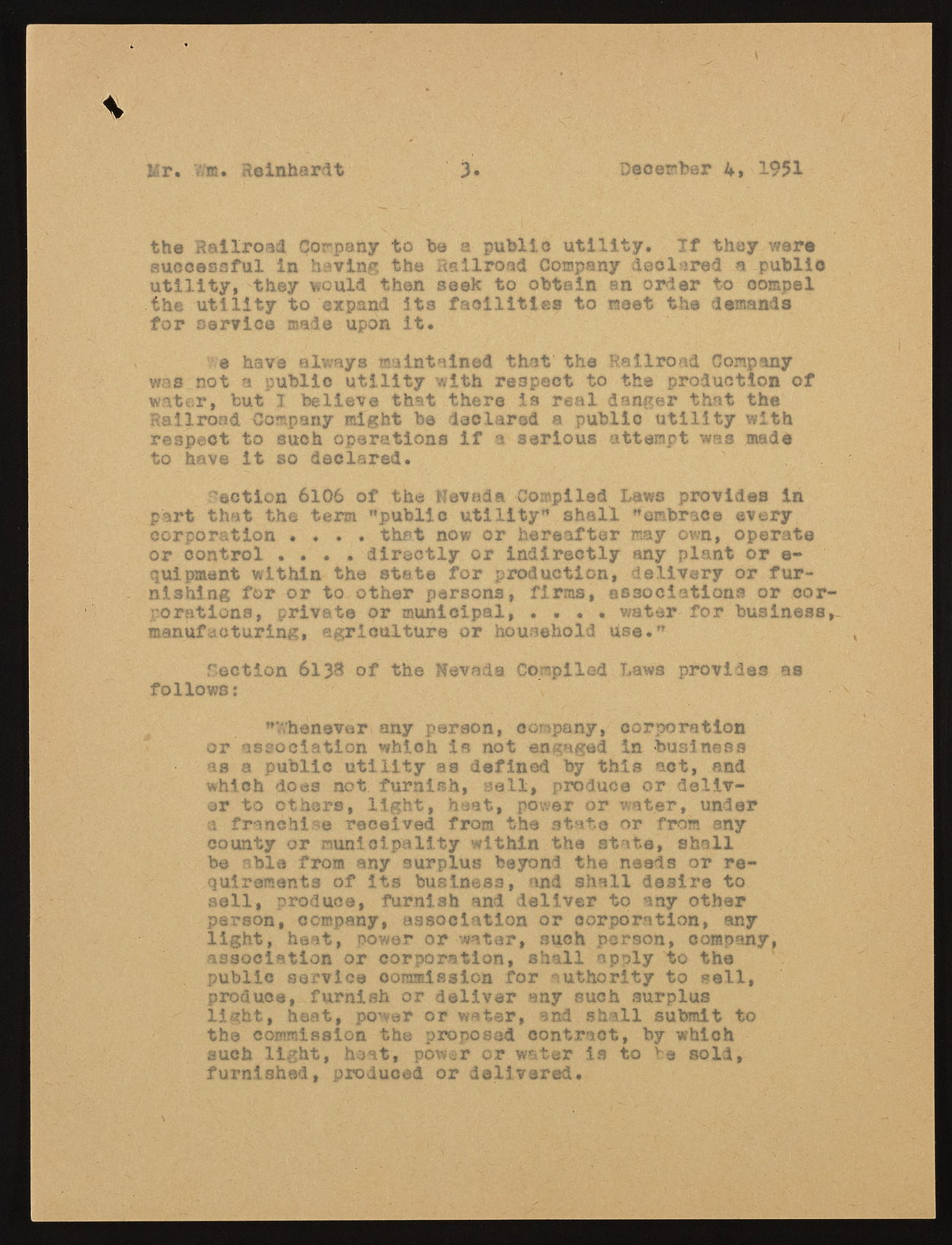Copyright & Fair-use Agreement
UNLV Special Collections provides copies of materials to facilitate private study, scholarship, or research. Material not in the public domain may be used according to fair use of copyrighted materials as defined by copyright law. Please cite us.
Please note that UNLV may not own the copyright to these materials and cannot provide permission to publish or distribute materials when UNLV is not the copyright holder. The user is solely responsible for determining the copyright status of materials and obtaining permission to use material from the copyright holder and for determining whether any permissions relating to any other rights are necessary for the intended use, and for obtaining all required permissions beyond that allowed by fair use.
Read more about our reproduction and use policy.
I agree.Information
Digital ID
Permalink
Details
More Info
Rights
Digital Provenance
Publisher
Transcription
Mr. Wm. Reinhardt 3. December 4» 1951 the Railroad Company to be a public utility. If they were successful la having the Railroad Company declared a public utility, they would then seek to obtain an order to compel the utility to expand Its facilities to meet the demands for service made upon it. @ have always maintained that the Railroad Company was not a public utility with respect to the production of water, but I believe that there in real danger that the Railroad Company might be declared a publio utility with respect to such operations if a serious attempt was made to have it so declared. Section 6106 of the Nevada Compiled Laws provides in part that the tern ’’public utility” shall ’’embrace every corporation . . . . that now or hereafter may own, operate or control . . . . directly or indirectly any plant or e-quipaant within the stete for production, delivery or furnishing for or to other persons, firms, associations or cor porations, private or municipal, . . . . water for business manufacturing, agriculture or household use.” Taction 613^ of the Nevada Compiled Laws provides as follower "Whenever any person, company, corporation or association which is not engaged in business as a public utility as defined by this act, and which does not furnish, sell, produce or deliver to others, light, heat, power or water, under sa franchise received from the state or from ©ny county or municipality within the state, shall be able from any surplus beyond the needs or requirements of its business, and shall desire to sell, produce, furnish and deliver to any other person, company, association or corporation, any light, heat, power or water, such person, company, association or corporation, shall apply to the public service commission for authority to sell, produce, furnish or deliver sny such surplus light, heat, power or water, and shall submit to the commission the pro posad contract, by which such light, host, power or water is to be sold, furnished, produced or delivered.

